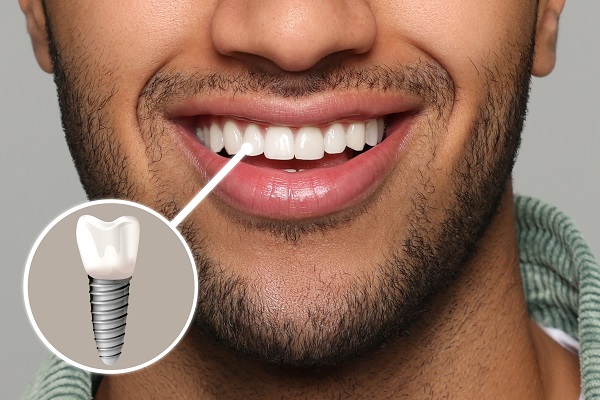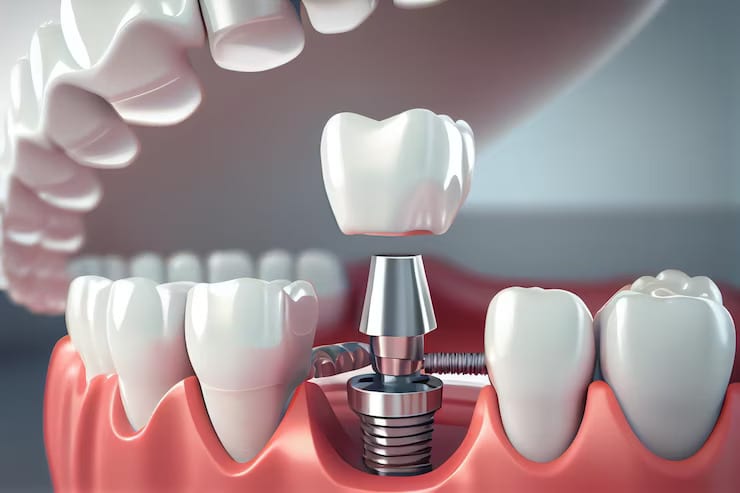Dentist Office Granville OH Frequently Asked Questions About Dental Implants
Dentist Office Granville OH Frequently Asked Questions About Dental Implants
Blog Article
Dental Center Hartford OH Dental Implant Surgery: Procedure, Recovery, and What to Expect
Dental implants have emerged as a well-liked selection for individuals in search of a long-term resolution to tooth loss. One essential aspect of understanding dental implants includes their effect on adjacent teeth. This is particularly necessary for ensuring the health and longevity of the complete dental structure.
When a dental implant is positioned, it mimics the function of a natural tooth root. By doing so, it helps maintain the integrity of the encompassing bone structure. Natural teeth rely on a balanced, interconnected system for support, and dental implants can contribute positively to that dynamic. The stability offered by the implant allows for better distribution of chunk forces, which can prevent undue stress on adjacent teeth.
Dental Care Pataskala OH Full Mouth Dental Implants: A Comprehensive Solution
In circumstances where a tooth is missing, the neighboring teeth could shift into the vacant house. This shifting can lead to misalignment and numerous different problems. By inserting a dental implant, the risk of this shifting is decreased, because the implant acts as a placeholder that preserves the natural alignment of surrounding teeth. This preventive impact is essential for long-term oral health and performance.
Another important consideration is bone loss. When a tooth is lost, the jawbone in the area can start to deteriorate due to a lack of stimulation. Dental implants assist prevent this bone loss by offering the necessary stimulation to the jawbone, much like a natural tooth root would. This preservation of bone not only helps the implant itself but additionally contributes to the stability of adjacent teeth.
The type of material used in dental implants, typically titanium, has a unique property of osseointegration, which means it fuses with the bone over time. This integration offers a sturdy foundation for the bogus tooth whereas making certain that the implant doesn’t negatively affect surrounding constructions. As the implant integrates, it creates an setting that contributes positively to the health of the adjacent teeth.

Regular dental check-ups play an important role in monitoring the impression of dental implants on adjacent teeth. Professional assessments may help determine any points which will come up, making certain immediate remedy and maintaining the health of the complete dental arch. These evaluations would possibly include X-rays to check for bone density and the overall condition of the implant and surrounding teeth.
Orthodontics Alexandria OH Your Local Guide to Dental Implants
Oral hygiene practices are very important for individuals with dental implants. Proper brushing and flossing habits not solely contribute to the longevity of the implant but also be positive that adjacent teeth remain wholesome. Food particles and plaque that accumulate across the implant could cause problems, together with peri-implantitis, an inflammatory condition that can have an result on surrounding teeth and tissues.
The positioning of dental implants can affect the health of adjacent teeth. If an implant is placed at an angle or not correctly aligned, it might lead to increased pressure on neighboring teeth. This misalignment might cause put on and tear on adjacent enamel, potentially leading to cavities or other dental issues. Therefore, the skill and expertise of the dentist performing the implant process are paramount in reaching a successful end result.
In some instances, extra procedures may be essential to prepare the encompassing area for an implant. Bone grafting or sinus lifts might help create a greater surroundings for the implant. While these procedures are geared toward enhancing the location for the implant, in addition they serve to protect the health of adjacent teeth by making a extra steady foundation.
Dentist Office Pataskala OH Types of Dental Implants

As dental technology evolves, advancements in implant techniques result in better outcomes. Improved imaging strategies and computer-aided design enable for extra precise placements that decrease risk to adjacent teeth. With these developments, the chance of problems that would come up from improperly positioned implants diminishes considerably.
Post-operative care also performs a important function in guaranteeing that adjacent teeth stay unaffected. Patients must adhere to the dentist's instructions regarding food plan, oral hygiene, and follow-up visits. Neglecting these guidelines could lead to complications that influence not solely the implant but additionally the neighboring teeth.
Dentist Office Condit OH Full Mouth Dental Implants
In conclusion, dental implants, when placed correctly and cared for correctly, have the potential to boost the health of adjacent teeth somewhat than detract from it. They keep alignment, stimulate bone progress, and provide a safe foundation that helps the complete dental structure. Understanding how dental implants have an result on adjacent teeth emphasizes their significance as a long-term tooth replacement solution. With steady advancements in expertise and techniques, the mixing of dental implants into restorative dentistry is changing into more and more profitable, making certain healthy and practical smiles for years to come back.

- Dental implants prevent adjacent teeth from shifting into the gap created by a missing tooth, serving to to maintain up correct alignment in the mouth.
- The rebuilding of the jawbone by way of an implant can stimulate surrounding teeth and keep them healthy by providing needed bone density which may in any other case diminish.
- Adjacent teeth benefit from the stabilization that dental implants present, lowering the danger of put on and tear and tear from misalignment during chewing.
- Implants can defend adjacent teeth by performing as a framework, which may distribute bite forces evenly across the dental arch as an alternative of placing undue stress on neighboring teeth.
- When placed appropriately, dental implants minimize the danger of gum disease which might affect adjacent teeth by maintaining a clear and wholesome gum line.
- The presence of an implant can facilitate an improved oral hygiene routine, because it eliminates the necessity for bridgework that could trap food particles around adjacent teeth.
- Regular dental check-ups can reveal how nicely the implant integrates with surrounding structures, guaranteeing ongoing health for adjacent teeth.
- Implants can prevent the natural strategy of bone resorption that occurs after tooth loss, positively impacting the steadiness and longevity of adjacent teeth.
- The use of dental implants would possibly cut back the necessity for extra invasive procedures sooner or later, offering a long-term solution that maintains the structure of the complete dental arch.
- Successful integration of an implant into the dental arch enhances overall oral function, typically leading to improved confidence and oral health for adjacent teeth.undefinedHow do dental implants affect adjacent teeth?
What influence do dental implants have on the alignment of adjacent teeth?
Dental implants typically prevent the shifting of adjacent teeth, helping to maintain correct alignment. This stability can cut back the danger of growing chunk issues over time.
Can dental implants trigger damage to nearby teeth?
When positioned accurately by a certified skilled, dental implants shouldn't damage adjacent teeth - Dental Care Sunbury OH. However, improper placement or inadequate planning may result in issues
Dentists Galena OH Full Mouth Dental Implants
Do dental implants require learn the facts here now any special care concerning adjacent teeth?
Maintaining good oral hygiene is crucial. Surrounding teeth must be brushed and flossed regularly, and routine dental check-ups will help be positive that both the implants and adjacent teeth remain healthy.

Will dental implants impression the health of my surrounding teeth?
Dental implants can enhance the health of surrounding teeth by distributing bite forces evenly, decreasing put on and tear. Additionally, they can prevent bone loss in the jaw, which might affect adjacent teeth.
Pediatric Dentist New Albany OH Single-Tooth Implants: Everything You Need to Know
Are there any long-term results of dental implants on close by teeth?
Long-term, dental implants can help protect the health of adjacent teeth by preventing shifting and potential gum issues, ultimately contributing to higher oral health general. - Dentists Johnstown OH
Can gum problems come up around adjacent teeth after Recommended Reading getting implants?
If proper dental care is neglected, gum issues might develop around each the implants and adjacent teeth. Following post-operative care directions is important to attenuate these risks.
Dental Center Hartford OH Understanding Dental Implants: A Comprehensive Guide
How do dental implants evaluate to bridges by way of adjacent teeth?
Dental implants are sometimes helpful as they don’t require alteration of adjacent teeth, not like bridges, which necessitate reshaping of close by teeth for support. (Dentist Office Granville OH)
Can I still get cavities in adjacent teeth if I even have dental implants?
Yes, adjacent teeth can still develop cavities if not correctly cared for. Dental implants themselves cannot get cavities, however they require vigilant hygiene practices to protect surrounding natural teeth.
What is the success rate of dental implants in relation to surrounding useful reference teeth?
The success rate of dental implants is high, however it largely depends on the quality of the procedure and ongoing care. Well-maintained implants typically result in better outcomes for adjacent teeth as properly.